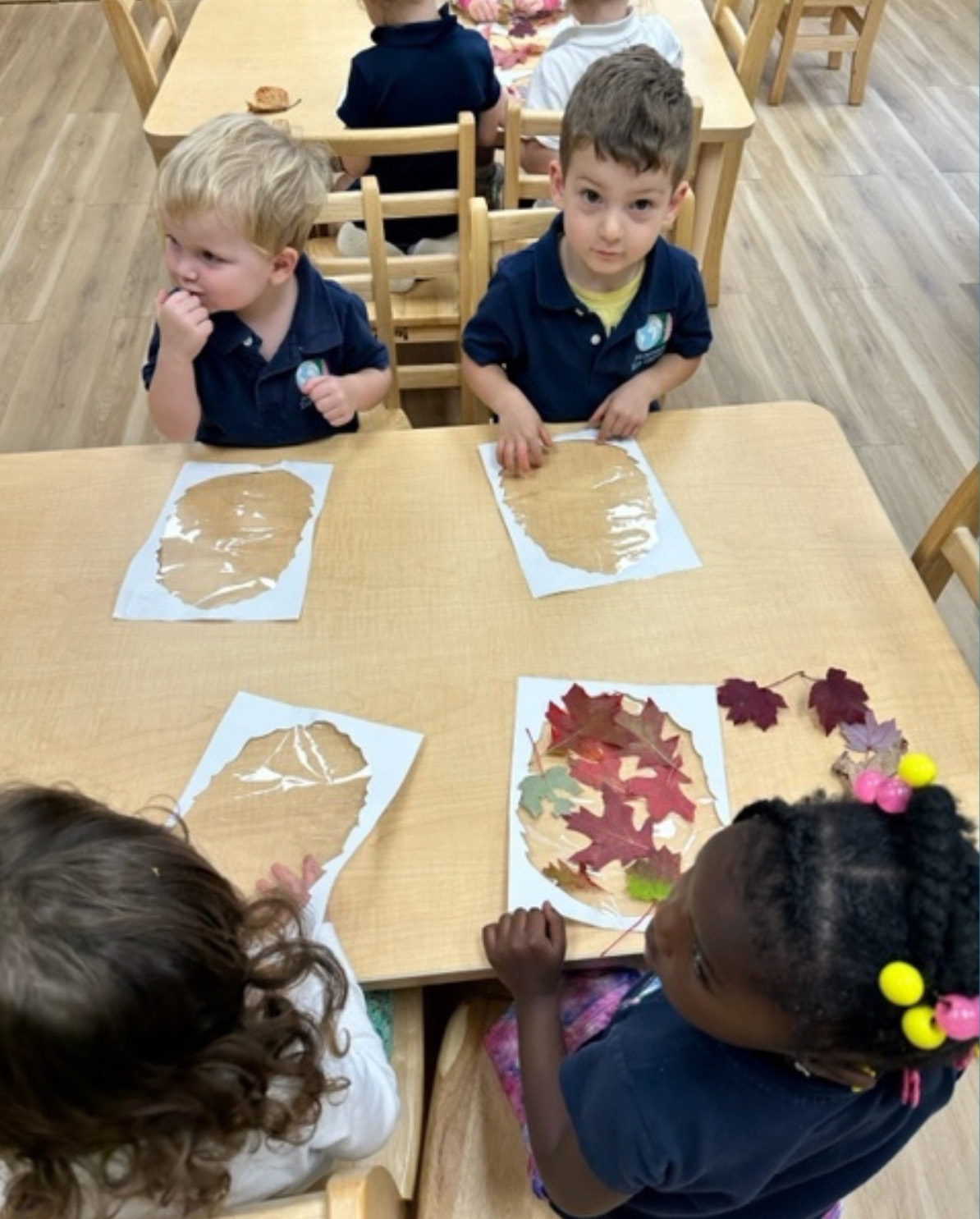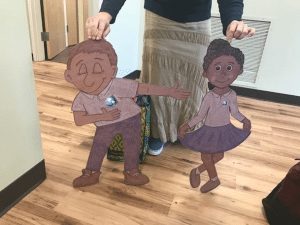Why Toddlers Belong Outdoors
Step outside with a toddler in autumn and you’ll quickly see how nature becomes the ultimate classroom. Every detail is new and fascinating from a leaf drifting down from a branch, to a squirrel darting across the yard.
At Montessori Kids Universe, we recognize that toddlers thrive on movement, exploration, and discovery. Outdoor learning is an extension of the classroom. Montessori nature activities for toddlers transform walks, leaf collecting, and simple observations into meaningful lessons that nurture independence and curiosity.
The Walk as a Learning Journey
A nature walk with toddlers is never rushed. Teachers set aside time for children to move at their own pace, stopping to notice small details adults often overlook.
- Observing Change: Toddlers may point to a bare tree branch, a red leaf, or a pile of pine needles. Teachers name these objects, expanding vocabulary naturally through real-world context.
- Listening to the World: The sound of wind rustling leaves or a dog barking in the distance becomes a chance to pause and reflect. Teachers model listening, helping toddlers connect sounds to sources.
- Practicing Independence: Each student might carry a small basket or bag, giving them responsibility during the walk. Even the act of holding their own container builds pride.
For toddlers, the walk itself is the lesson. It develops focus, patience, and awareness of the environment.
Leaf Collecting as Practical Life Work
One of the most powerful Montessori nature activities for toddlers is leaf collecting. It may seem ordinary, but the process contains multiple layers of learning.
- Choice-Making: A toddler decides which leaf to pick up. Bright red? Curled brown? Smooth yellow? Each choice strengthens independence.
- Carrying and Care: Placing a leaf into a basket requires control and gentleness. If the leaf crumbles, the student notices cause and effect.
- Sorting Back Indoors: Once inside, toddlers may sort their leaves by size or color. They may line them up in order, an introduction to sequencing and math concepts.
This rich, purposeful work aligns perfectly with Montessori’s focus on independence and order.
Nature as a Sensorial Classroom
The Montessori curriculum emphasizes refining the senses, and the outdoors provides endless opportunities.
- Texture Exploration: Toddlers feel the smooth surface of a pebble, the rough bark of a tree, or the brittle crunch of a leaf in their hands.
- Color Recognition: Teachers point out the changing hues of leaves, helping toddlers connect names to visual experiences.
- Temperature Awareness: A cool breeze on cheeks or the warmth of sun on skin builds awareness of seasonal change.
Instead of teaching senses through artificial materials, nature offers the real thing.
Language Through Experience
Every nature walk expands a toddler’s vocabulary. When a student picks up an acorn, the teacher might say, “That’s an acorn. It has a smooth cap.” When a bird sings, the teacher pauses and might say, “Do you hear the bird? That sound is called chirping.”
By connecting words to direct experiences, toddlers absorb language more deeply than they would from flashcards or books alone. Parents often notice this transfer at home.
Building Community and Responsibility
Montessori nature activities for toddlers also nurture a sense of belonging. When children care for the environment, they begin to understand their role in the community.
- Picking up leaves together becomes teamwork.
- Watering plants in the school garden teaches responsibility.
- Watching animals gather food sparks conversations about preparation and care.
Through these experiences, toddlers start to see themselves as part of something larger.
Why Montessori Nature Activities Feel Different
In many early education settings, outdoor time is treated as recess or a chance to “burn off energy.” Montessori takes a different approach, showing students that nature is a living environment that shapes concentration, respect, and discovery.
Nature activities provide opportunities for toddlers to lead. They choose what to pick up, what to notice, and what to carry. This trust communicates something powerful: their choices matter.
Bringing Nature Exploration Home
Parents can easily extend Montessori nature activities outside of school.
- Take short walks at your child’s pace, pausing when they stop to notice something.
- Provide a small basket and let them collect leaves, pinecones, or rocks.
- Create a simple “nature shelf” at home where they can display their finds.
- Use the collected items for sorting games, art projects, or storytelling.
These activities deepen your toddler’s connection to the natural world while reinforcing independence.
Seeing the World Through Toddler Eyes
When you walk with a toddler in autumn, you begin to see what they see. Every acorn is a treasure. Every leaf tells a story. Every gust of wind is worth pausing for.
In Montessori classrooms, these moments are honored as real learning. Toddlers need the freedom to explore nature with all their senses and the trust of adults who walk beside them, noticing the world together.
Bringing Outdoor Learning Full Circle
Small, consistent moments in nature help toddlers build independence, language, and care for their environment. A simple walk, a leaf collection, or watering a garden plant can become part of your family rhythm and reinforce what your child practices in the classroom.
See how toddler nature walks and leaf collecting come to life in a prepared environment designed for exploration and calm. Schedule a tour and find a Montessori Kids Universe location near you.


